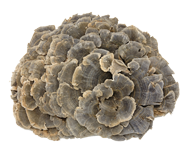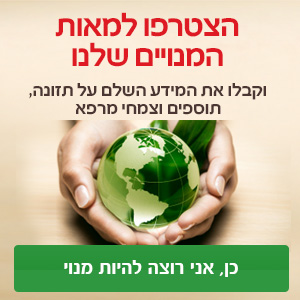חלק הצמח | איכויות | רכיבים פעילים | התוויות | מינונים | רגישות | תופעות לוואי |
מינון יתר | אזהרות | התוויות נגד | רעילות | אינטראקציות | הריון | הנקה
שמו הבוטני המלא של הצמח הוא Coriolus (Trametes) versicolor
משמעות שם המין (versicolor) בלטינית הינה "של צבעים רבים". שם זה מתאר את הצבעוניות של הפטרייה.
השם העממי (Turkey tail) מתייחס לצורתה של הפטרייה, הדומה לזנבו של תרנגול הודו בר.
כיום, קוריולוס אינו מאושר ע"י משרד הבריאות הישראלי כתוסף תזונה, אך גם אינו נמצא ברשימת הצמחים האסורים לשיווק.

חלק הצמח בשימוש
הפטרייה בשלמותה.
איכויות
טמפרטורה: ניטראלי
לחות: ניטראלי
טעם: מריר, מתקתק
רכיבים פעילים עיקריים
פוליסכרידים (Polysaccharide-K (PSK), a beta-1,4-glucan, polysaccharide-P (PSP)).
התוויות
חולשה חיסונית, סרטן, תשישות.
מינונים
תמצית נוזלית בריכוז 1:3, 30% אלכוהול – 6-20 מ"ל ביום.
תמצית יבשה תקנית בריכוז 40% פוליסכרידים – 1000-2100 מ"ג ביום.
מרתח – 1.5-9 גרם ביום.
בפורמולה – 25%-30%.
רגישות
לא ידועה רגישות מיוחדת.
תופעות לוואי
תופעות לוואי של שימוש בקוריולוס הן נדירות וכוללות למידע השלם למנויים
מינון יתר
לא ידוע על מינון יתר.
אזהרות וצעדי מנע
לא ידוע על אזהרות מיוחדות או על צעדי מנע שיש לנקוט.
התוויות נגד
יש להימנע ממתן קוריולוס לאנשים הסובלים מ למידע השלם למנויים
רעילות
לא נצפתה רעילות בשימוש בקוריולוס במינונים המקובלים.
בקרב נשים החולות בסרטן שד למידע השלם למנויים
תגובות הדדיות עם תרופות / צמחי מרפא / תוספי תזונה
חילוף חומרים תרופתי
במחקר שנערך בחולדות, פוליסכריד P שבודד מקוריוליוס במתן פומי (במינון 1-3 מיקרומול לק"ג ליום) במשך שלושה ימים, הפחית את קצב פינוי התרופה המאלחשת Antipyrine מהדם ב-30-35% והעלה את החשיפה הסיסטמית של התרופה (עליה של 55% בזמן מחצית החיים של התרופה ועליה של 61% בריכוז התרופה ביחס לזמן AUC). מנגנון פעולתו המשוער הוא עיכוב של פעילות אנזימי ציטוכרוֹם P450 בכבד (Total hepatic chytochrome P450). לא נצפתה השפעה על אנזימי הציטוכרוֹם ועל חילוף החומרים התרופתי בעקבות מתן חד פעמי של רכיב הצמח.
לא ברורה הרלוונטיות הקלינית של ממצאים אלו.
תרופות מדכאות חיסון – למידע השלם למנויים
תרופות כימותרפיות - למידע השלם למנויים
הריון
אין מספיק מידע בנושא.
הנקה
אין מספיק מידע בנושא.
מקורות
- Shiu WCT, et al. A Clinical Study of PSP on Peripheral Blood Counts during Chemotherapy. Phytotherapy Research 1992; (6): 217-218.
- Kidd, PM. The use of mushroom glucans and proteoglycans in cancer treatment. Altern Med Rev 2000 5(1): 4-27.
- Torkelson CJ, et al. Phase 1 Clinical Trial of Trametes versicolor in Women with Breast Cancer. ISRN Oncol. (2012)
- Brinker F. Herb Contraindications and Drug Interactions, 4th ed. Sandy (OR): Eclectic Medical Publications; 2010
- Chu KKW, Ho SSS, Chow AHL. Coriolus versicolor: a medicinal mushroom with promising immunotherapeutic values. J. Clin. Pharmacol., 42:976-984, 2002
- Qian ZM, Xu MF, Tang PL. Polysaccharide peptide (PSP) restores immunosuppression induced by cyclophosphamide in rats. Am. J. Chin. Med., 25(1):27-35, 1997
- Shiu WCT, Leung TWT, Tao M. A clinical study of PSP on peripheral blood counts during chemotherapy. Phytother. Res., 6:217-218, 1992
- Chan SL, Yeung JH. (2006). Modulation of antipyrine clearance by polysaccharide peptide (PSP) isolated from Coriolus versicolor in the rat. Food Chem Toxicol 44:1607–1612
- Chung C.H.; Go P.; Chang K.H. PSK immunotherapy in cancer patients--a preliminary report. Zhonghua. Min. Guo. Wei. Sheng. Wu. Ji. Mian. Yi. Xue. Za. Zhi, 1987, 20(3), 210-216.
- Fisher M., Yang L.X. Anticancer effects and mechanisms of polysaccharide-K (PSK): implications of cancer immunotherapy. AntiCancer Res, 2002, 22(3), 1737-1754.
- Koda, K.; Miyazaki, M.; Sarashina, H.; Suwa, T.; Saito, N.; Suzuki, M.; Ogawa, K.; Watanabe, S.; Kodaira, S.; Nakazato, H. A randomized controlled trial of postoperative adjuvant immunochemotherapy for colorectal cancer with oral medicines. Int. J. Oncol, 2003, 23(1), 165-172.
- Morimoto T.; Ogawa M.; Orita K. Postoperative adjuvant randomised trial comparing chemoendocrine therapy, chemotherapy and immunotherapy for patients with stage II breast cancer: 5-year results from the Nishinihon Cooperative Study Group of Adjuvant Chemoendocrine Therapy for Breast Cancer (ACETBC) of Japan. Eur. J. Cancer, 1996, 32A(2), 235-242.
- Nishiwaki Y.; Furuse K.; Fukuoka M.; Ota M.; Niitani H.; Asakawa M.; Nakai H.; Sakai S.; Ogawa N. [A randomized controlled study of PSK combined immuno-chemotherapy for adenocarcinoma of the lung. The Advanced Lung Cancer Immunochemotherapy Study Group]. Gan. To. Kagaku. Ryoho, 1990, 17(1), 131-136.
- Ohno R.; Yamada K.; Masaoka T.; Ohshima T.; Amaki I.; Hirota Y.; Horikoshi N.; Horiuchi A.; Imai K.; Kimura I. A randomized trial of chemoimmunotherapy of acute nonlymphocytic leukemia in adults using a protein-bound polysaccharide preparation. Cancer Immunol. Immunother, 1984, 18(3), 149-154.
- Sakamoto J.; Morita S.; Oba K.; Matsui T.; Kobayashi M.; Nakazato H.; Ohashi Y.; Meta-Analysis Group of the Japanese Society for Cancer of the Colon Rectum. Efficacy of adjuvant immunochemotherapy with polysaccharide K for patients with curatively resected colorectal cancer: a meta-analysis of centrally randomized controlled clinical trials. Cancer Immunol. Immunother, 2006, 55(4), 404-11.
- Yokoe T, Iino Y, Takei H. HLA antigen as predictive index for the outcome of breast cancer patients with adjuvant immunochemotherapy with PSK. AntiCancer Res, 1997, 17(4A), 2815-2818.
- Hattori T.; Nakajima T.; Nakazato H.; Tanabe T.; Kikuchi K.; Abe O.; Kondo T.; Taguchi T.; Komi N.; Sugimachi K. Postoperative adjuvant immunochemotherapy with mitomycin C, tegafur, PSK and/or OK-432 for gastric cancer, with special reference to the change in stimulation index after gastrectomy. Jpn. J. Surg, 1990, 20(2), 127-136.
- Ohwada S.; Ogawa T.; Makita F.; Tanahashi Y.; Ohya T.; Tomizawa N.; Satoh Y.; Kobayashi I.; Izumi M.; Takeyoshi I.; Hamada K.; Minaguchi S.; Togo Y.; Toshihiko T.; Koyama T.; Kamio M. Beneficial effects of protein-bound polysaccharide K plus tegafur/uracil in patients with stage II or III colorectal cancer: analysis of immunological parameters. Oncol. Rep, 2006, 15(4), 861-8.
- Ohwada S.; Ikeya T.; Yokomori T.; Kusaba T.; Roppongi T.; Takahashi T.; Nakamura S.; Kakinuma S.; Iwazaki S.; Ishikawa H.; Kawate S.; Nakajima T.; Morishita Y. Adjuvant immunochemotherapy with oral Tegafur/Uracil plus PSK in patients with stage II or III colorectal cancer: a randomised controlled study. Br. J. Cancer, 2004, 90(5), 1003-1010.
- Sugimachi K.; Maehara Y.; Ogawa M.; Kakegawa T.; Tomita M. Dose intensity of uracil and tegafur in postoperative chemotherapy for patients with poorly differentiated gastric cancer. Cancer Chemother. Pharmacol, 1997, 40(3), 233-238.
- Ito K.; Nakazato H.; Koike A.; Takagi H.; Saji S.; Baba S.; Mai M.; Sakamoto J.; Ohashi Y.; Study Group of Immunochemotherapy with PSK for Colon Cancer. Long-term effect of 5-fluorouracil enhanced by intermittent administration of polysaccharide K after curative resection of colon cancer. A randomized controlled trial for 7-year follow-up. Int. J. Colorectal. Dis, 2004, 19(2), 157-164.
- Shibata M.; Nezu T.; Kanou H.; Nagata Y.; Kimura T.; Takekawa M.; Ando K.; Fukuzawa M. Immunomodulatory effects of low dose cis-Diaminedichloroplatinum (cisplatin) combined with UFT and PSK in patients with advanced colorectal cancer. Cancer Invest, 2002, 20(2), 166-173.

דוגמא למונוגרף מלא
לרכישת מנוי |
כניסת מנויים






